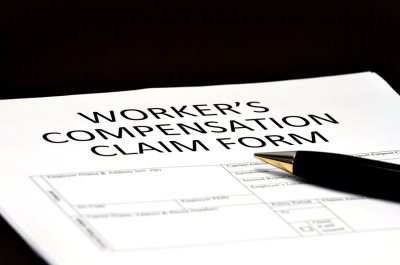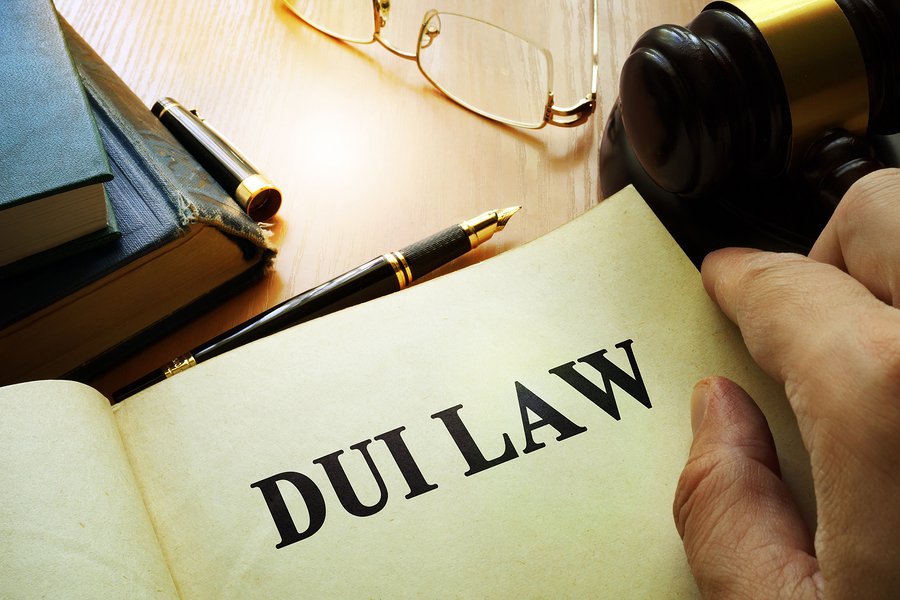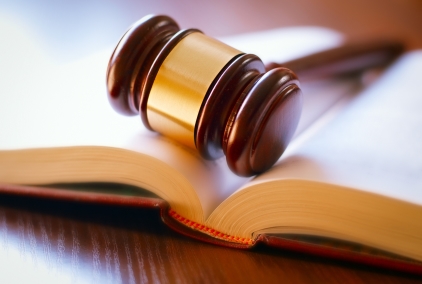-
FAQs and Answers About Maryland’s DUI-Related AEP Requirements
Maryland’s Alcohol Education Program, or AEP, is a rehabilitation initiative for people who have been convicted of DUI or DWI. If your attorney in Baltimore advises you to attend one of these programs as a result of your court case, here is a look at what you need to know.

What exactly is the AEP?
Maryland’s AEP is a 12-hour class designed to educate people about alcohol use and abuse as well as the risk of driving while intoxicated. It is frequently required for people who have been convicted of DUI or DWI before they can regain their licenses. In some cases, a 12-hour AEP program is recommended by the court in lieu of jail time or other penalties, especially for a first offense. If the court has identified you as an alcohol abuse or alcohol dependent, you may be required to take a longer program than the 12-hour AEP.
What are some reasons I may need to take the AEP?
You could be referred to the AEP on the recommendation of a district court judge or by an administrative law judge from the Office of Administrative Hearings. If your license was revoked because of an alcohol-related offense, you will be referred to the AEP when you apply to have your license reinstated. Your lawyer may request that you be referred to the AEP as well to reduce some of the other potential punishments associated with your DUI or DWI conviction.
What are the consequences of not attending the AEP?
When you are referred to the AEP, you must begin the class within 90 days of your referral. If you do not, then you will receive a letter telling you that you are required to surrender your license to an MVA location. You will need to complete the course before you can get your license back. If you were instructed to attend the AEP in lieu of another punishment, the court may enforce that punishment instead.
If you are in need of a DUI defense attorney, contact Jack J. Schmerling Attorney at Law today!
-
The Workers’ Compensation Claims Process Step-by-Step
If you are injured on the job, the steps you take after the injury may determine your ability to claim compensation. It’s important to closely follow the correct procedures are you file a claim, including finding a workers’ comp lawyer in Baltimore to help you with your case. Follow these steps to protect your rights and preserve your ability to collect compensation for your injury.

Report Your Injury
It is imperative to report any injury that occurs at work to your supervisor right away, including acute injuries, occupational diseases, and cumulative-trauma injuries. Be very clear with your supervisor that your injury is specifically related to work, and ensure that he or she creates an official accident report. If your supervisor refuses to prepare a report or doesn’t include all of the relevant details in the report, write to him or her an official letter documenting the injury. If you can get your supervisor to sign something acknowledging receipt of the letter, it can be helpful to your workers’ compensation lawyer, but if not, simply keep a copy of the letter and a note of when you delivered it. If a report was prepared, get a copy.
See a Doctor
A doctor should evaluate you as soon as possible. Your company may have a preferred physician, but you are entitled to choose your own doctor under Maryland law. Be very clear in explaining your injury to your doctor, specifically stating that it was a work injury. Follow your medical instructions precisely, and request notes if your doctor recommends that you don’t work or avoid certain activities. All bills should be sent to your employer or your employer’s insurance company. Your workers’ compensation attorney can help you understand where your bills should go.
Consult Your Lawyer
Stay in contact with your workers’ compensation attorney throughout the claims process. He or she will walk you through all of the necessary steps to achieving a successful claim. Don’t discuss your case with anyone at work, and talk to your lawyer if you are contacted by an insurance company.
-
What Happens After You File for Workers’ Compensation? [INFOGRAPHIC]
Filing a workers’ compensation claim can be as stressful as the injury itself. Although some claims are straightforward, it is always helpful to have a workers’ compensation lawyer at your side to ensure your rights are being protected. When you file a claim, the first step is getting documentation of your injury from a doctor. Only a medical professional can determine if your injury will prevent you from working. Although most employers in Maryland are required to have workers’ comp insurance, your boss may decide to dispute your claim. If this occurs, you will need a workers’ compensation attorney to fight on your behalf. Find out more about workers’ compensation cases in this info-graphic from Jack Schmerling, Attorney at Law . Our workers comp lawyer in Baltimore will help you win the compensation that you deserve. Please help other workers understand the importance of hiring a workers’ compensation attorney when they are injured on the job by sharing this information.

-
Understanding Phantom Pain
If a serious car accident injury leads to an amputation, then you may experience phantom pain. Your car accident lawyer in Baltimore will consider your phantom pain alongside the other circumstances of your accident when seeking damages on your behalf. Here is a closer look at what you need to know about phantom pain.
After an amputation, phantom pain is pain that feels like it is coming from the limb that has been amputated. It is not something that occurs in your head but rather the result of stimuli from your spinal cord and brain. The symptoms can be severe and difficult to manage, and for some people, they can last indefinitely. Your car accident attorney will factor the severity of your phantom pain and your doctor’s prognosis to decide what your future medical costs may be, as well what kind of pain and suffering damages to pursue from the negligent party.

-
How to Deal with a DUI or DWI, From Start to Finish

It’s a very difficult situation if you find yourself or a loved one arrested for a DUI (driving under the influence) or DWI (driving while intoxicated). While it’s a situation that no one wants to find themselves in, unfortunately, it can happen. While it’s vital to make sure you seek counseling and therapy throughout the entire process to make sure you’re dealing with it properly, it’s also important to take care of the legal aspects, which can be very daunting. To help make an already difficult time easier, Jack J. Schmerling is here to provide advice on how to proceed after a DUI or DWI.
What To Do After a DUI or DWI
Police officers can generally use three methods to determine if you’ve had too much to drink. They can observe you and pull you over if your driving is suspicious; they can ask you to perform a sobriety test, such as performing balance or speech tests; or they can also measure your blood-alcohol level. You can refuse taking a chemical test at a DUI or DWI stop, but this generally means implied consent. This states that refusal could lead to suspension of your license for between 3 to 12 months, even if you’re eventually found not guilty. Do note that if the case goes to trial, this could lead jury members to believe you refused because you actually were intoxicated or under the influence.
Sometimes you’ll have to appear for an arraignment, a court appearance where you’re formally charged and asked to respond by entering a plea. You’ll be asked to plead either guilty or not guilty. Having an attorney at this stage is usually unnecessary; you can always change your plea later. You can usually insist on a jury trial as well, and you should deny convictions so your attorney can challenge their validity later.
It’s difficult to defend a drunk driving charge, since it involves a keen understanding of scientific and medical concepts. Hiring a lawyer who has a specialty in these cases is paramount to making sure you receive effective legal counsel. If the police don’t have physical evidence, it’s possible an attorney could plea your case to what’s called a “wet reckless”; while it doesn’t sound as bad as a DUI, it tends to carry the same fines and penalties.
After being released, your options include pleading guilty, asking for a trial before a judge, or trying to plea bargain. Consulting with your lawyer is strongly recommended. You will understand if it’s best to fight the charge or plea bargain, and much of this depends on your recorded blood alcohol level. No matter what route you want to take, getting an attorney is in your best favor to make sure you can navigate the legal field of life after a DUI or DWI.
How Do I Proceed?
To help you proceed in the difficult time after you or a loved one has been charged with a DUI or DWI, please get in touch with us at Jack J. Schmerling, Attorney at Law. Throughout Glen Burnie, MD, we’re available for legal counsel. For a free evaluation, call us today at (410) 988-4956.
-
Defining Personal Injury and When to Call a Lawyer

In the case that you find yourself injured or hurt and it’s likely due to someone else, you may find yourself wondering what the proper course of action is. Do you deserve restitution or compensation? Is a lawyer necessary? Or should bygones be bygones? It’s often a difficult field to navigate, and knowing how to proceed can be tricky. Jack J. Schmerling, Attorney at Law understands just that, so today we’ll define what personal injury and provide some guidelines on when to call a lawyer.
What is Personal Injury?
Personal injury law exists to cover situations where one’s body, mind, or emotions are hurt. It’s usually because of another party’s negligence or carelessness. This includes wrongful death, and another name for personal injury law is tort law. Some kinds of personal injury cases include car accidents, dog bites, injuries from explosives or chemicals, or injuries to one’s reputation by defamation. Emotional and mental health can also be included: such as the deliberate infliction of emotional distress, or as a byproduct from a physical injury.
Personal injury usually involves negligence, which happens when the defendant didn’t meet their legal duty of care and the plaintiff was then injured. Strict liability can be applied in certain cases; which means the defendant who harms the plaintiff is responsible, how careful the defendant was notwithstanding. However, this is limited to certain cases, such s consumer product liability claims.
When Is It Necessary To Call a Lawyer?
When it comes to filing a claim, it’s in your best interest to hire a personal injury lawyer. The attorney will represent you and make sure that you receive the maximum amount of compensation entitled. There are a few cases where hiring a lawyer is unnecessary, such as when it’s a non-serious injury, or where liability has been admitted. However, it’s wise to always get a free consultation to have your case evaluated. Your case will be much more successful if there’s documentation and proof. This could be receipts, doctor’s notes, medical bills, and other items that can help document the proof of the sustained injury and incurred expenses.
A lawyer is also often necessary if you’re suffering emotionally or mentally, as it becomes more difficult to navigate the legal waters then. You should also contact an attorney if you suffer from injuries after some time, but were not immediately or readily noticed. In these cases, it’s wise to have legal counsel to make sure you aren’t taken advantage of. The terminology can often be confusing: assumed risk, incurred risk, arbitration, etc. It’s easy to get lost and lose perspective in an emotionally-charged situation like this, which is why it’s wise to call a lawyer as soon as possible.
How Do I Get in Touch?
At Jack J. Schmerling in Glen Brunie, MD, we’re glad to offer our assistance in the case of personal injury. With years of experience, we can guarantee that we will provide the best help possible so that you receive the compensation you deserve. To get in touch with us, don’t hesitate to call us at (410) 988-4956 today.
-
Your Social Security Disability Rights are Critical: How We Can Help Make Sure You’re Treated Fairly
Often, it’s in your best interests to find a disability benefits attorney to assist you in the process of applying for disability benefits from the Social Security Administration (SSA). While it can sometimes be a straightforward process, each case is unique and it’s important to make sure your disability rights are fully upheld and you’re receiving the compensation and benefits you deserve. To help explain the process, Jack J. Schmerling, Attorney at Law is here to explain just how we can make sure you’re being treated fairly.

How Do We Assist in the Process?
When thinking of hiring a disability attorney to help, it’s important to understand what the benefits are. With legal counsel, you’re more likely to have your case approved. It’s wise to call early. If you’re just considering filing, get a free consultation with us just to get an idea on the strength of your case and get some help with the initial application.
An attorney helping you get disability benefits will assist during the application process and can sometimes move it more quickly through the system. This can be done especially if you have a terminal medical condition or find yourself in an extreme financial duress. An attorney can also request an on-the-record hearing; this means you could possibly be approved without having to go to a hearing
Your attorney will request medical records necessary to help win the claim, and will have them submitted to the SSA when it’s appropriate. You’ll need to sign a medical privacy release, granting your attorney the access to your medical records. Social Security often mandates the exams needed to win a claim, so your attorney will review your medical records to ascertain if additional testing is required. If needed, your attorney will ask the SSA for a consultative examination with a doctor. They will also decide what doctors are necessary to ask for statements in your favor, figure out how to deal with evidence that could hurt your case, and so forth.
We also help by reviewing you with questions that you’ll normally have to answer in your hearing, such as if you have health insurance, if you take care of your hygiene, and if you take pain medication and how frequently. We will help you answer these questions honestly, even if it’s difficult or embarrassing, so that we can effectively represent you. Of course, whatever you say is privileged, so your attorney can only share what you authorize them to. They’ll decide if witness testimony is necessary, and determine what the best way to win your case is. There are different theories that can be used, such as proving your condition meets a disability listing. Throughout the entire process, your attorney will keep you closely updated on their progress so you understand what’s happening.
What’s Next?
Are you ready to get an attorney to assist with your social security disability benefits? Or do you simply need some more information? We have you covered! At Jack J. Schmerling, you can contact us for a free consultation where we’ll review your case and let you know how to proceed. To get the assistance you deserve in Glen Burnie, MD, give us a call today at (410) 988-4956!
-
You Were in a Car Accident: Here’s What To Do
If you’ve been in a car accident, it’s often difficult to know exactly what to do after. It’s understandable: there’s so much going on in such a traumatic moment, and proper procedure is often the farthest thing on your mind. However, to ensure that the law is properly carried out, it’s important to follow some steps so the law’s on your side. That’s why Jack J. Schmerling is here to let you know just how to handle a car accident.

Steps to Follow After a Car Accident
First, it’s important to never drive away from the accident, no matter how minor it is. Leaving the scene will make the entire process so much more difficult. Try to make the area safer if possible, by keeping your flashers on or turning on a flashlight if it’s at night. Then, call the police, even if there are no serious injuries. A police report may be necessary if you want to file a claim with your insurance company, even if the claim is just for damage. Make sure you don’t tamper with the scene: if possible, leave your vehicle where it was, unless it’s obstructing traffic.
The next thing you want to do is make sure you exchange information with all the drivers involved. Take their name, phone number, insurance company and policy number, license plate number, and driver license number. Take photographs to document the accident: you want to make sure that your pictures grasp the overall context and provide objective evidence of the scene. Also take down a written description of each car involved. You’ll want to include the model, color, year, make, etc. If there are any visible injuries, photograph those as well. Through this process, make sure you aren’t interfering with the police or emergency services, if applicable. Make sure to get the names and contact information of some of the witnesses, if necessary. This could prove to be valuable down the line.
Next, file an accident report. Often, officers won’t respond to an accident if there haven’t been any injuries. You still want to file a report, which you can find at police stations and oftentimes on the Department of Motor Vehicles, as it’ll speed up the process. Make sure you notify your insurance company quickly, as you’ll find that policies often want immediate reporting. Know what your insurance covers so you know how to best proceed; check your policy for specifics. Seek medical attention, even if no injuries are immediately obvious. Finally, keep a file with all the related documents together throughout the entire process.
Protecting Your Rights
Most importantly, you need to consult an attorney so your rights are protected. You need solid legal advice regarding compensation, determining fault, and a wide array of issues in such a stressful time. If so, don’t hesitate to contact Jack J. Schmerling, Attorney at Law in Glen Burnie by calling (410) 988-4956 today!
-
Was It Your Fault or Theirs? Auto Accident Layers are Essential in Getting the Answer
In the unfortunate incident that you’re involved in an auto accident, there will undoubtedly be many issues on your mind. Determining who was at fault is just one of them. You’ve probably seen ads on TV telling you to call an injury lawyer if you’ve been injured, but they don’t get into more detail than that. While there are a few cases where clarity of liability is obviously clear, such as when the other party was obviously at fault and admits it, most of the times that’s not how it works. Liability can be shared, or you may simply have no idea how to evaluate your claim. These are just some of the many issues that could plague you, which is why Jack J. Schmerling, Attorney at Law is here to help you.

Why Auto Accident Lawyers are Vital
Fault is perhaps the biggest issue when you make any auto accident claim, and is a pivotal statement before you get anywhere in the entire procedure. Many different factors play a role in determining who’s liable for damages or injuries from the accident, and the decision of who has to pay mostly rests on the motor vehicle statutes. The law can thus be a tricky place to navigate when it comes to determining fault.
Fault for causing an accident either is determined by law or defined by the common law, which recognizes four levels of fault: negligence, recklessness or wanton conduct, intentional misconduct, and strict liability, regardless of fault. Someone could be negligent through failure to, for example, actively doing something such as running a red light. Recklessness is defined as willfully disregarding other’s safety. Strict liability might be imposed in accidents involving especially dangerous activities such as transporting explosive chemicals. Those who have caused an accident under common law have committed a tort, a private wrong against someone else, and are referred to as tortfeasors. In the case of intentional/reckless misconduct, determining fault is usually simple. However, when general negligence comes into play, which is common among many accidents, determining fault can be increasingly difficult, which is why a lawyer is essential in getting to the truth.
Motor vehicle statutory violations also regulate how drivers operate their cars, and are often codified versions of common law. Violating these statutes tends to create the idea of negligence as a matter of law. For example, not wearing a helmet as a motorcyclist is an act of negligence and will likely affect liability. Fault can then be determined by citing the violated statue. The concept of proximate cause can also be applied, among other important factors. Throughout the entire procedure, an attorney is vital to make sure your auto accident claims are successful.
What’s the Next Step?
Need an auto accidents lawyer in Glen Burnie? Jack J. Schmerling, Attorney at Law can help you. Our outstanding professional service will leave you satisfied through the often stressful process of dealing with insurance companies, so for a free consultation, give us a call today at (410) 988-4956!
-
Injuries at Work and When to Contact a Lawyer
In the unfortunate incident that you’ve sustained a work injury, you may be unsure when and if it’s necessary to contact an attorney to have a consultation over worker’s compensation. After all, if it’s a relatively minor injury and your initial doctor’s visit was covered, there’s no need to take it any farther, right? Not exactly. To make the process easier, Jack J. Schmerling, Attorney at Law, is here to help you.

When Should You Get in Touch With a Worker’s Compensation Lawyer?
As soon as you sustain a work injury, you need to get in touch with an attorney to avoid any ramifications. The law states that you have 120 days to report a work injury, starting from the date of injury or when you knew of the disease or illness. After 21 days, you won’t be able to recover worker’s compensation benefits until you do give notice, as long as it’s within the given 120 days. If you don’t do so, you cannot collect any benefits.
Various other deadlines apply to certain paperwork, and failure to respect these deadlines could minimize the amount of benefits you’re entitled to, which is why getting in touch with an attorney as soon as possible is recommended. Beyond that, there are some other specific moments when it’s strongly advised to get a worker’s compensation lawyer.
For example, if you file a claim after an injury, the attorney will help make sure that all involved are following proper protocol, including you, the insurance company, the doctor, and your employer. Another moment when it’s important to contact a lawyer is if your employer or your insurance company deny your claim. Your employer has 21 days to accept your claim. They can also choose to approve payment for the bills but deny payment for lost wages, accept your claim for 90 days if they’re unsure your injuries sustained were related to work (and can stop benefits anytime during the 90 days), or deny the claim if there isn’t enough evidence to support your claim.
Contact a worker’s compensation lawyer immediately if your employer tries to stop or modify your benefits. For example, they could try to reduce or even eliminate your benefits by trying to issue medical examinations claiming you’re fit to return to work even if you are still unable to, so an attorney will protect your rights. Also make sure to get in touch with a lawyer if your employer tries to control your medical treatment by saying that you can only visit a specific doctor; it’s important to make sure you receive quality medical care throughout the entire process.
Getting in Touch With a Compensation Lawyer
Don’t hesitate to contact us Jack J. Schmerling, Attorney at Law! Proudly serving the Greater Baltimore Metro Area, we can help you if you’ve suffered a work injury and need a lawyer to protect your rights to the fullest. Give us a call for a free consultation at (410) 988-4956!
““
RECENT POSTS
categories
- Uncategorized
- Worker's Compensation
- Attorney Fees
- Auto Accident Injury Whiplash
- Attorney Review
- Personal Injury
- Social Security Disability
- DUI
- Workplace Injuries
- Auto Accident
- Workers Compensation Claims
- Permanent Disability
- Infographic
- Drunk Driving
- Wrongful Death
- Works in Maryland
- Uninsured Motorists
- Motorcycle Crashes
